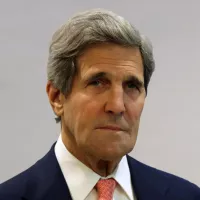Hawaii is a U.S. state located in the Pacific Ocean, approximately 2,000 miles southwest of the continental United States. It's one of two non-contiguous states and is unique as the only state not on the North American mainland, the only archipelago state, and the only state situated in the tropics.
1900: Hawaii Granted Self-Governance
In 1900, Hawaiʻi was granted self-governance and retained ʻIolani Palace as the territorial capitol building.
1901: Puerto Ricans in Hawaii
By 1901, over 5,000 Puerto Ricans were residing in Hawaii, contributing to the island's diverse population.
1903: First Wave of Korean Immigration
In 1903, the first wave of Korean immigration to Hawaiʻi occurred, lasting until 1924.
1920: Indigenous Hawaiian Population Decline
By 1920, the Indigenous Hawaiian population had fallen to 24,000 from an estimated 300,000 in the 1770s due to foreign diseases.
1923: Population Composition
In 1923, 42% of the population of Hawaii was of Japanese descent, 9% of Chinese descent, and 16% Native Hawaiian descent.
1924: First Wave of Korean Immigration Ends
In 1924, the first wave of Korean immigration to Hawaiʻi ended, after starting in 1903.
April 27, 1931: Warmest Temperature Recorded
On April 27, 1931, the warmest temperature recorded in Hawaii, in Pahala, was 100 °F (38 °C).
1947: OR&L Main Line Abandoned
In 1947, the main line of the Oahu Railway and Land Company (OR&L) was officially abandoned.
1948: Omitting Marks in Hawaiian Newspapers
Hawaiian-language newspapers (nūpepa) published from 1834 to 1948 and traditional native speakers of Hawaiian generally omit the marks in their own writing.
1949: Drafting of State Constitution
In 1949, the Constitution of the State of Hawaii was drafted. The drafted document predates the use of the ʻokina ⟨ʻ⟩ and the kahakō in modern Hawaiian orthography.
March 1959: Hawaii Admissions Act Passed
In March 1959, Congress passed the Hawaiʻi Admissions Act, which President Dwight D. Eisenhower signed into law.
June 27, 1959: Referendum on Statehood
On June 27, 1959, a referendum asked residents of Hawaiʻi to vote on the statehood bill; 94.3% voted in favor of statehood and 5.7% opposed it.
August 21, 1959: Hawaii Joins the Union
On August 21, 1959, Hawaii became the most recent state to join the United States.
1959: Statehood
Since Hawaii's statehood in 1959, tourism has become the largest industry in the state.
1959: Tourism Industry Growth
The Hawaii tourism industry began to grow with statehood in 1959.
1960: Hawaii Participated in Presidential Election
Since gaining statehood and participating in its first election in 1960, Hawaii has supported Democrats in all but two presidential elections.
1961: Hawaii Islanders Baseball Team
From 1961, the Hawaii Islanders, a Triple-A minor league baseball team, played at the Pacific Coast League.
1964: Hiram Fong Sought Republican Nomination
In 1964, Senator Hiram Fong of Hawaii sought the Republican presidential nomination.
1965: Second Wave of Korean Immigration Begins
In 1965, the second wave of Korean immigration to Hawaiʻi began after President Lyndon B. Johnson signed the Immigration and Nationality Act of 1965.
1970: Hiram Fong Last Republican Senator
Hawaii has not elected a Republican to represent the state in the U.S. Senate since Hiram Fong in 1970.
1970: U.S. Navy Bought and Operated Part of OR&L
In 1970, a portion of the Oahu Railway and Land Company (OR&L) was bought and operated by the U.S. Navy until this year.
1970: Racial Makeup of Hawaii
In 1970, the Census Bureau reported Hawaii's population was 38.8% white and 57.7% Asian and Pacific Islander.
1972: Hawaii Supported Richard Nixon
In 1972, Hawaii supported Republican Richard Nixon in the presidential election.
1973: Honolulu Marathon
Hawaii has hosted the Honolulu Marathon since 1973.
1975: Damaging Earthquakes and Tsunamis
In 1975, slope instability on the volcanoes' flanks generated damaging earthquakes and related tsunamis.
1977: Team Hawaii Soccer Team
In 1977, Team Hawaii, a North American Soccer League team, played.
1977: Democrat Senators in Hawaii
Since 1977, both of Hawaii's U.S. Senators have been Democrats.
1978: Ironman World Championship
Hawaii has hosted the Ironman World Championship triathlon race since 1978.
1978: Hawaii's Official Languages in the Constitution
In 1978, English and Hawaiian were designated as Hawaii's official languages in the state's constitution, although Hawaiian's use was limited to situations provided by law.
1978: Hawaiian Added as Official Language
In 1978, Hawaiian was added to the Constitution of the State of Hawaii as an official state language alongside English.
1978: Hawaiʻi State Constitutional Convention
In 1978, the Hawaiʻi State Constitutional Convention created institutions such as the Office of Hawaiian Affairs to promote indigenous language and culture.
May 1979: Record Low Temperature
In May 1979, Hawaii's record low temperature was 12 °F (−11 °C), observed on the summit of Mauna Kea.
1983: Ultraman Triathlon
Hawaii has hosted the Ultraman triathlon since 1983.
1984: Hawaii Supported Ronald Reagan
In 1984, Hawaii supported Republican Ronald Reagan in the presidential election.
1987: Hawaii Islanders Baseball Team
Until 1987, the Hawaii Islanders, a Triple-A minor league baseball team, played at the Pacific Coast League.
1993: Hawaiians March for Trust Land Access
In 1993, 17,000 Hawaiians marched to demand access and control over Hawaiian trust lands and as part of the modern Hawaiian sovereignty movement.
1993: Apology Resolution Passed
In 1993, Congress passed a joint Apology Resolution regarding the overthrow of the Kingdom of Hawaiʻi, which was signed by President Bill Clinton.
1993: U.S. Apology for Overthrow
In 1993, the U.S. government formally apologized for its role in the overthrow of Hawaii's government, spurring the Hawaiian sovereignty movement.
1997: Tourism's Contribution to GSP
In 1997, tourism contributed 24.3% of the gross state product (GSP) of Hawaii, highlighting its economic significance.
1999: Tournament of Champions
Hawaii has hosted the Tournament of Champions golf tournament since 1999.
2000: English as the Primary Language
According to the 2000 Census, 73.4% of Hawaii residents aged 5 and older exclusively spoke English at home, indicating its dominance as the primary language.
2000: FINA World Open Water Swimming Championships
In 2000, Hawaii hosted the FINA World Open Water Swimming Championships.
2000: Religious Distribution Data
In 2000, data was provided by religious establishments regarding the distribution of religion in Hawaii.
2000: Projected Lifespan
The average projected lifespan of people born in Hawaii in 2000 is 79.8 years.
2000: Median Home Value
The median home value in Hawaii in the 2000 U.S. Census was US$272,700, which was the highest of all states.
2002: Agricultural Sales
According to the Hawaii Agricultural Statistics Service, in 2002, agricultural sales were US$370.9 million from diversified agriculture, US$100.6 million from pineapple, and US$64.3 million from sugarcane.
2003: Pacific Buddhist Academy Founded
In 2003, the Pacific Buddhist Academy, which is the second Buddhist high school in the U.S. and the first such school in Hawaii, was founded.
2003: State's Gross Output
In 2003, the state's gross output was US$47 billion.
2004: John Kerry Won Hawaii's Electoral Votes
In 2004, John Kerry won Hawaii's four electoral votes by a margin of nine percentage points with 54% of the vote.
August 2005: School Performance Standards
In August 2005, reports indicated that 185 out of 282 schools across Hawaii failed to meet federal minimum performance standards in mathematics and reading.
2005: Kamehameha Enrollment
In 2005, Kamehameha Schools enrolled 5,398 students, which represented 8.4% of the Native Hawaiian children in the state.
June 15, 2006: Papahānaumokuākea Marine National Monument Proclaimed
On June 15, 2006, President George W. Bush proclaimed the Papahānaumokuākea Marine National Monument.
2006: Native Hawaiian Speakers
In 2006, the Hawaiian language had about 2,000 native speakers, which was about 0.15% of the total population.
December 2007: Hawaii Superferry Operations Began
In December 2007, the Hawaii Superferry began operating between Oʻahu and Maui.
February 19, 2008: Obama Won Hawaii Democratic Caucus
On February 19, 2008, Barack Obama won the Hawaii Democratic caucus with 76% of the vote.
November 4, 2008: Barack Obama Elected President
On November 4, 2008, Honolulu-born Barack Obama was elected the 44th president of the United States.
2008: Total Hawaiian Language Speakers
According to the United States Census, there were more than 24,000 total speakers of the Hawaiian language in Hawaii in 2006–2008.
2008: Pan-Pacific Championship
In 2008, Hawaii hosted the Pan-Pacific Championship soccer tournament.
2008: English Spoken at Home
The 2008 American Community Survey indicated that 74.6% of Hawaii's residents over the age of 5 spoke only English at home.
March 2009: Hawaii Superferry Operations Ended
In March 2009, the Hawaii Superferry operations between Oʻahu and Maui ended due to protests and legal problems.
2009: Health Care System
As of 2009, Hawaii's health care system insured 92% of residents, requiring businesses to provide insurance to employees working over twenty hours a week.
2009: Military Spending
In 2009, the United States military spent US$12.2 billion in Hawaii, which was 18% of the state's spending for that year.
2009: Membership of Latter-Day Saints
The Church of Jesus Christ of Latter-day Saints had 68,128 adherents in 2009, making it a significant religious group in Hawaii.
2010: Native Hawaiian Ancestry
In 2010, 156,000 residents declared themselves to be solely of Native Hawaiian ancestry, and an additional 371,000 declared themselves to possess Native Hawaiian ancestry in combination with other races.
2010: Catholic Church Membership
In 2010, the Catholic Church was the largest religious denomination in Hawaii, with 249,619 adherents.
2010: Median Sale Price of a Home
In 2010, the median sale price of a single-family home in Honolulu, Hawaii, was US$607,600, the highest of any U.S. city.
2010: Population Increase
Since 2010 the population of Hawaii had an increase of 60,190 (4.42%).
2010: Same-Sex Couple Households
The number of same-sex couple households in 2010 was 3,239, reflecting a 35.5% increase from a decade earlier.
2011: Military Personnel on Islands
As of 2011, the U.S. military reported it had 42,371 personnel on the islands.
2011: School Year Enrollment
During the 2011–2012 school year, Hawaii public and charter schools had an enrollment of 181,213, while private schools had 37,695.
November 6, 2012: Barack Obama Re-elected President
On November 6, 2012, Barack Obama was re-elected for a second term as president of the United States.
December 26, 2012: Brian Schatz Appointed as U.S. Senator
On December 26, 2012, Brian Schatz was appointed as a United States senator from Hawaii following the death of Daniel Inouye.
2012: School Year Enrollment
During the 2011–2012 school year, Hawaii public and charter schools had an enrollment of 181,213, while private schools had 37,695.
2012: Lotte Championship
Hawaii has hosted the Lotte Championship golf tournament since 2012.
2012: Non-Hispanic White Population Under Age 1
In 2012, 14.5% of the resident population under age 1 was non-Hispanic white in Hawaii.
2012: Mazie Hirono Won Senator Election
In 2012, Mazie Hirono won the election for Senator in Hawaii, following the retirement of Daniel Akaka.
2012: LGBTQIA+ Proportion in the U.S.
In 2012, a Gallup poll revealed that Hawaii had the largest proportion of LGBTQIA+ adults in the U.S., at 5.1%, with an estimated 53,966 individuals.
2012: Seed Industry Revenue
In 2012, seeds yielded US$264 million, supporting 1,400 workers in Hawaii, due to the state's consistent climate that allows for testing three generations of crops per year.
2013: Number of Millionaires
According to a 2013 study by Phoenix Marketing International, Hawaii had the fourth-largest number of millionaires per capita in the United States, with a ratio of 7.2%.
2013: Legalization of Same-Sex Marriage
In 2013, Hawaii became the fifteenth U.S. state to legalize same-sex marriage, resulting in a reported boost of $217 million in tourism revenue.
October 2014: Electricity Prices
In October 2014, average electricity prices in Hawaii (36.41 cents per kilowatt-hour) were nearly three times the national average (12.58 cents per kilowatt-hour) and 80% higher than the second-highest state, Connecticut.
2014: Brian Schatz Won Special Election
In 2014, Brian Schatz won the special election for U.S. Senator in Hawaii.
2014: Hawaii as a Majority-Minority State
In 2014, Hawaii was expected to be one of three states, along with California and New Mexico, without a non-Hispanic white plurality.
2014: Per Capita Income
The per capita income for Hawaii residents in 2014 was US$54,516.
December 2015: State's Unemployment Rate
As of December 2015, Hawaii's unemployment rate was 3.2%.
2015: Land Ownership
According to scholar Winona LaDuke, as of 2015, 95% of Hawaiʻi's land was owned or controlled by just 82 landholders, including over 50% by federal and state governments, as well as the established sugar and pineapple companies.
2015: Asian Ancestry in Hawaii's Population
As of 2015, a large proportion of Hawaii's population had Asian ancestry, especially Filipino, Japanese, and Chinese, tracing back to immigrants who worked on sugarcane plantations in the 19th century.
2015: Recognition of Hawaiian Pidgin
In 2015, the U.S. Census Bureau recognized Hawaiian Pidgin as an official language in Hawaiʻi, acknowledging its widespread use among residents, but debates about its role in education continued.
2016: Brian Schatz Won Regular Election
In 2016, Brian Schatz won the regular election for U.S. Senator in Hawaii.
2016: Passenger Ferry to Molokai Ended
In 2016, a passenger ferry service to Molokai came to an end.
May 30, 2017: Honolulu International Airport Renamed
On May 30, 2017, Honolulu International Airport was officially renamed Daniel K. Inouye International Airport, after the late U.S. Senator Daniel K. Inouye.
2017: Political Leanings
As of 2017, Hawaiʻi almost always votes Democratic, while Alaska typically votes Republican.
May 2018: Kīlauea Eruption
In May 2018, Kīlauea erupted, opening 22 fissure vents, destroying at least 36 buildings and necessitating the evacuation of more than 2,000 inhabitants.
2018: Ed Case Elected to Congress
In 2018, Ed Case was elected as a representative to the 1st congressional district.
2018: Mazie Hirono Won Senator Election
In 2018, Mazie Hirono won election for Senator in Hawaii.
2018: Population Estimate
In 2018, the United States Census Bureau estimated the population of Hawaii to be 1,420,491, a decrease of 7,047 from the previous year but an increase of 60,190 since 2010.
2018: Top Countries of Origin for Immigrants
In 2018, the top countries of origin for immigrants in Hawaii were the Philippines, China, Japan, Korea and the Marshall Islands.
2019: Tourism in Hawaii
According to the Hawaii Tourism: 2019 Annual Visitor Research Report, a total of 10,386,673 visitors arrived in 2019 which increased 5% from the previous year, with expenditures of almost $18 billion, over 216,000 jobs statewide and contributed more than $2 billion in tax revenue. Tourists across the globe visited Hawaii in 2019.
2019: Population Survival Rate Data
Data for 2019 details the percentage of the population that would survive to a certain age if their life conditions in that year were extrapolated to their whole life.
2020: Population by Race
According to the 2020 United States Census, Hawaii had a population of 1,455,271.
2020: Plastic Pollution Report
In 2020, the Center for Biological Diversity reported on the plastic pollution of Hawaii's Kamilo beach, citing massive piles of plastic waste.
2020: Hawaii Ranked as Easiest State to Vote In
In a 2020 study, Hawaii was ranked as the 6th easiest state for citizens to vote in.
January 2022: Legislation Proposed to Split Sheriff Department
In January 2022, state officials proposed legislation that would split the sheriff department from the Department of Public Safety and consolidate it with the criminal investigation division from the Department of the Attorney General to create a new Department of Law Enforcement.
2022: Homeless Population
According to HUD's 2022 Annual Homeless Assessment Report, there were an estimated 5,967 homeless people in Hawaii.
2022: Brian Schatz Won Regular Election
In 2022, Brian Schatz won the regular election in Hawaii as Senator.
2022: Hawaii Ranked as Heavily Democratic State
The 2022 Cook Partisan Voting Index ranks Hawaii as the third-most heavily Democratic state in the nation.
2023: Hawaii's Congressional Seats Held by Democrats
As of 2023, all four of Hawaii's seats in the United States Congress (two senators and two representatives) are held by Democrats.
2023: Skyline Rail Line Opened
In 2023, a portion of Skyline, an elevated passenger rail line operated by HART, opened for service.
2024: Mazie Hirono Won Senator Election
In 2024, Mazie Hirono won election for Senator in Hawaii.
October 2025: Next Phase of Skyline Expected to Open
The next phase of Skyline, an elevated passenger rail line, is expected to open in October 2025.
2031: Final Phase of Skyline Expected
The final phase of Skyline, an elevated passenger rail line, is expected to be completed in 2031.
Mentioned in this timeline

Barack Obama the th U S President - was the...

Bill Clinton served as the nd U S President from...

George W Bush the rd U S President - is...

Sony is a Japanese multinational conglomerate based in Tokyo Its...

John Kerry is an American politician and diplomat notable for...
China officially the People's Republic of China is an East...
Trending

8 minutes ago Hilary Knight criticizes Trump's White House invite as distasteful and reacts to Trump's joke.

5 months ago Jon Hamm: From Mad Men to a Beloved Actor

9 minutes ago Dolly Parton Praises 'Son of Jolene,' Sequel to Iconic Hit 'Jolene' Released
16 hours ago IonQ Stock Surges After Earnings Beat; Optimistic 2026 Revenue Forecast Released.
9 minutes ago Eva Marcille Hints at Possible Return to RHOA: 'Never Say Never'

1 hour ago Brooks Koepka aims to contend at PGA Tour's Cognizant Classic after comeback.
Popular

Jesse Jackson is an American civil rights activist politician and...

Susan Rice is an American diplomat and public official prominent...

Barack Obama the th U S President - was the...

XXXTentacion born Jahseh Dwayne Ricardo Onfroy was a controversial yet...

Michael Joseph Jackson the King of Pop was a highly...

Michael Jordan widely considered one of basketball's greatest players significantly...